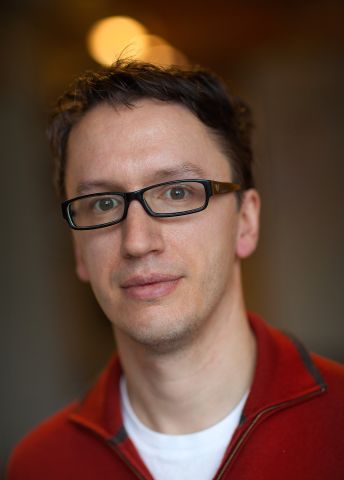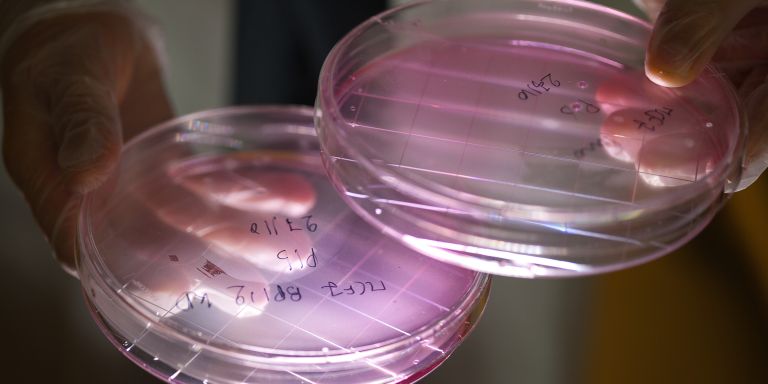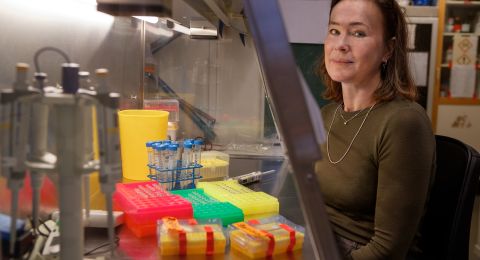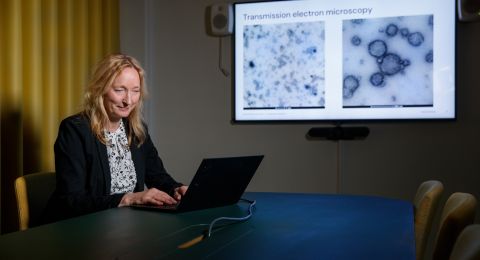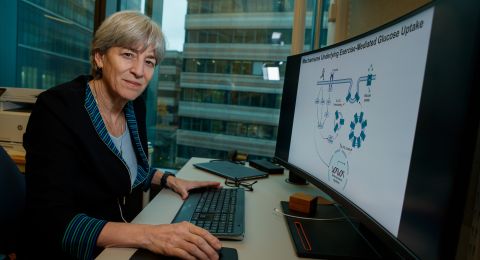By combining biomedicine, statistics and informatics, Ola Larsson is mapping regulation of protein production in cancer cells. His aim is to gain a fundamental understanding of why cancer cell growth is uncontrolled. It is hoped that it will be possible in the future to use drugs to restore order in cancer cells.
Ola Larsson
Researcher in the field of protein synthesis/translation
Wallenberg Academy Fellow 2013
Institution:
Karolinska Institutet
Research field:
Translation of RNA into proteins, and the mechanisms regulating this process
Protein production is affected in many types of cancer cell. There is an overproduction of the proteins that stimulate cell division.
“Over the past 10 – 15 years much of cancer research has been about identifying mutations in individual genes. The idea has been to develop new drugs that attack the specific protein that is coded for by the mutated gene,” Ola explains.
“Targeted” drugs of this kind have often worked well to start with, but the tumor has then returned in a new, resistant form that cannot be treated. This is because cancer cells have a pronounced ability to change and develop resistance to drugs. With some exceptions, treatment with drugs of this kind has therefore not been very successful.
“We want to find out whether cancer treatment can instead target the fundamental cellular processes controlled by the genes that are mutated in cancer cells. One such vital cellular process is called translation, which is the process when the cell reads the genetic code in the form of mRNA and produces different proteins on that basis.
There’s no hocus pocus about this. Translation is an extremely basic function; in order for a cell to divide, it must make more proteins.”
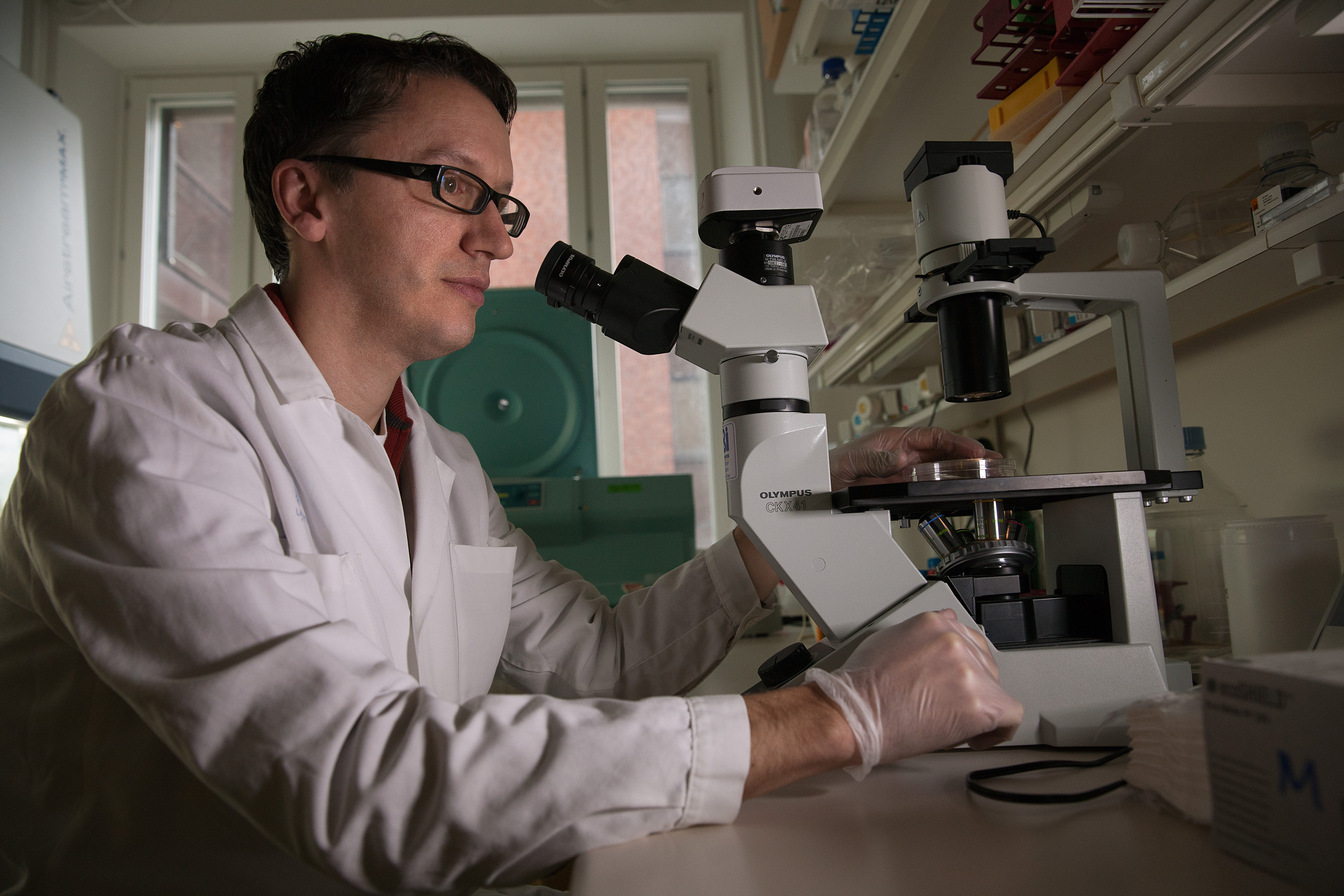
Polymath
Ola gives the impression of being something of a polymath. Even as a child, he was a frequent and fairly advanced computer user, which was not very common in the 1980’s. He studied biomedicine at Karolinska Institutet, gained a PhD in functional genomics, and then shifted his research focus from the genome, i.e. the entire human DNA sequence, to the totality of protein production in humans, known as the “translatome”.
“I was inspired by an American guest professor at Karolinska Institutet. First and foremost, I was fascinated that such an important scientific field is still relatively unknown.”
As a postdoc, he studied mathematics over breakfast, and conducted research in biomedicine and statistics in the days, the evenings and on weekends.
“I have always believed that it is good to change fields, and that it is better to possess unique knowledge than to possess the same knowledge as everyone else, and try to run fastest. I think my strength is that I have succeeded in combining my knowledge of statistics and informatics with my expertise in biomedicine and in the cancer field.”
Ola is also a serious pianist, with a predilection for classical music. In his early teens, he considered a career as a professional musician. And his sports bag is always packed and ready on the floor of his office, so he can indulge in his chosen sports – floorball, badminton, and squash, among others.
“The grant means a great deal. For a young researcher it is one of the foremost forms of recognition one can receive in Sweden, and it is also internationally renowned. The fact that the grant is a long-term one, over five years, also enables us to consider factors that are more difficult. So for me this funding represents a leap forward.”
Further studies in greater depth
As a Wallenberg Academy Fellow, Ola Larsson will be delving deeper into how regulation of cancer cell translation works. The goal is to understand the basic mechanisms that cause malfunction of protein production in cancer.
The research project comprises two parts. The first centers on the mRNA molecule. Ola and his team are studying the characteristics and changes in mRNA that disable normal regulation of protein production.
“If we succeed in understanding what it is in a cancer cell’s mRNA that causes it to be wrongly translated, we may ultimately be able to find the molecules binding directly to mRNA and inhibiting the production of proteins that stimulate cell division.”
The second part of the project is to study RNA-binding proteins. At present there are believed to be about 1,000 of them. The question is whether and in what way they affect translation. To answer this question Ola Larsson and his team are removing them one by one to see how this affects protein production.
Some of these RNA-binding proteins ensure that any mRNA that might be present in the cell is not translated into proteins, thereby acting as a kind of safety mechanism. Others, such as “translation factor 4E”, may instead increase the production of a few selected proteins that cause cancer to develop.
“We know that if 4E activity increases in a cell, as it does in cancer, the cell will suddenly be able to translate mRNA that it does not normally translate. But we still know very little about what governs selectivity.”
If 4E is inhibited in a cancer cell, the cell stops dividing and will probably die, whereas a normal cell does not appear to be affected to the same degree. Better knowledge of this process may also lead to new forms of cancer treatment.
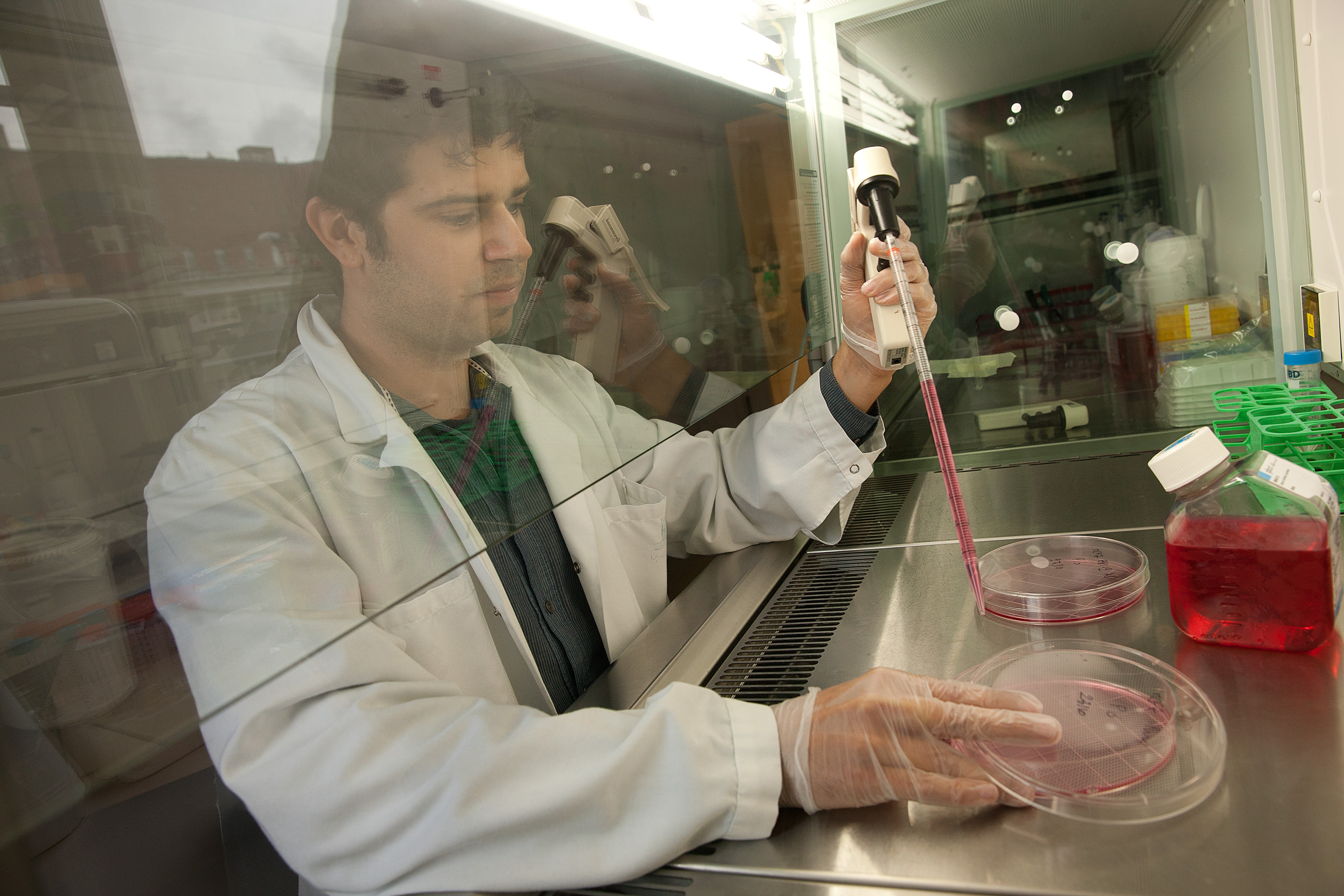
Passion for research
For Ola, research is a passion – an interest rather than a job.
“It might be difficult for other people to understand, but I live and breathe research from the moment I wake up until I fall asleep at night. It’s exciting, extremely stimulating and an enormous challenge.”
Text Anders Esselin
Translation Maxwell Arding
Photo Magnus Bergström
